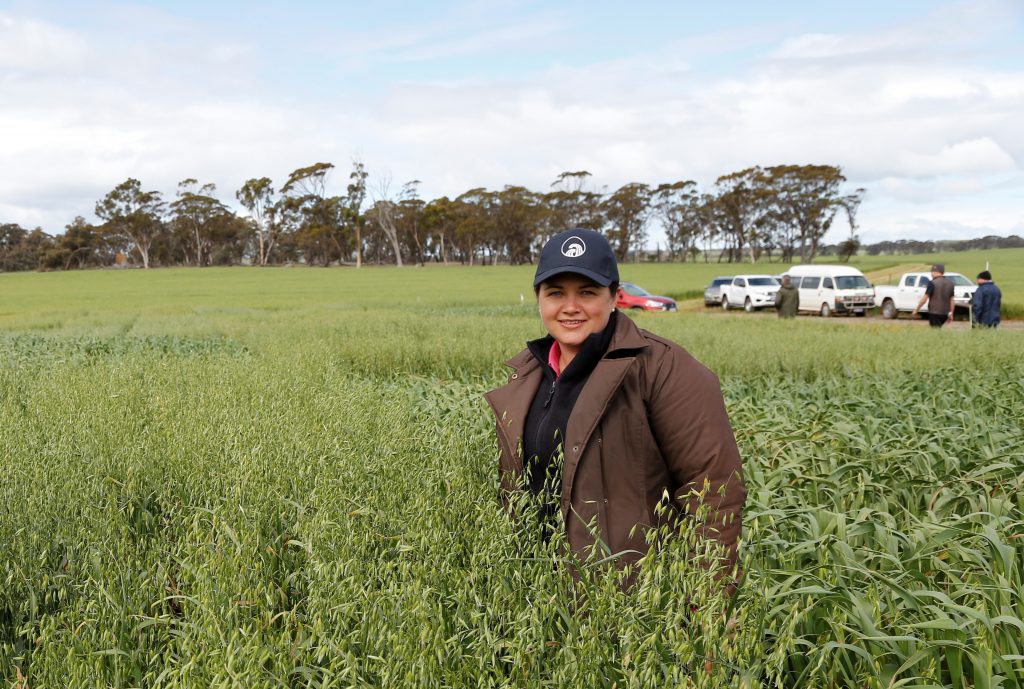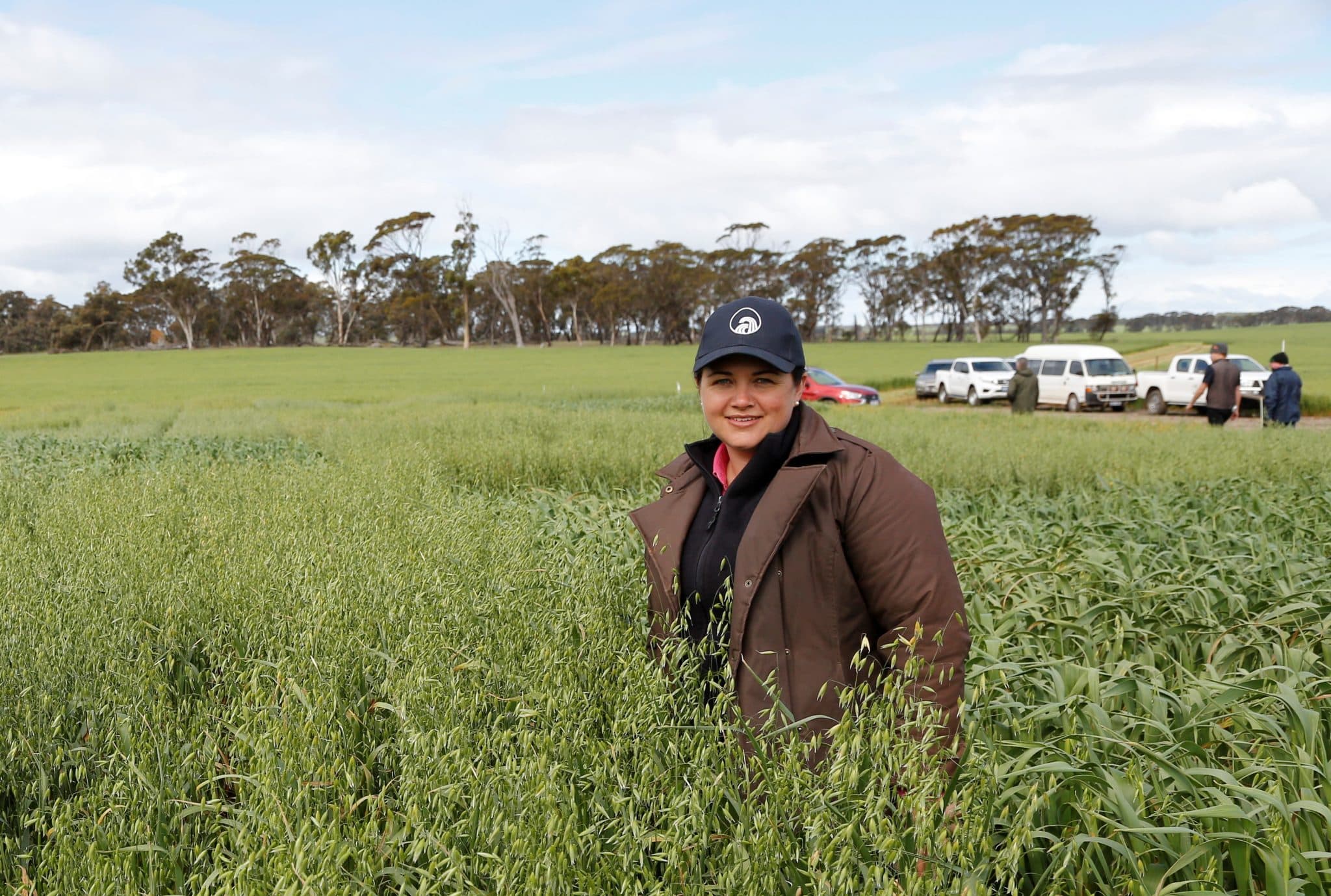I’m Georgie Troup and I wear a few hats, which is common among most rural people. Firstly, I am a grower, as part of a family farming enterprise in the wheatbelt region of WA. We produce grain, export fodder, sheep meat and wool. Secondly, I am a Research Agronomist with the Department of Primary Industries and Regional Development, where I lead the agronomy research program for oat grain and hay research. Thirdly, I am on the Board of the Australian Fodder Industry Association. I’m also a volunteer Emergency Medical Technician (or ambo) in our community.
I’m fortunate to work with the AgriFutures Australia team on the National Hay Agronomy project. I lead a group of brilliant researchers across Australia to support the export oaten hay industry. The AgriFutures Export Fodder Program supports the National Hay Agronomy project, providing investment, guidance, and acting as a linkage between all activities that are underway in the fodder sector.
As a grower and researcher I kept asking questions that I couldn’t find answers to, there seemed to be some pretty clear knowledge gaps that needed addressing, so I got involved with the National Hay Agronomy project. I worked with growers, researchers and exporters to determine what needed to happen, and this was supported by the industry and the AgriFutures Export Fodder Program. All we needed was for someone to take the reins and run with it, that person was me.
No matter what part of the ag sector I’ve worked in, it’s always been the people and the environment that motivates me. The wide-open spaces, the kind faces, and the motivated people – all wanting to be here for the long haul; it certainly makes it a great industry to work in.










